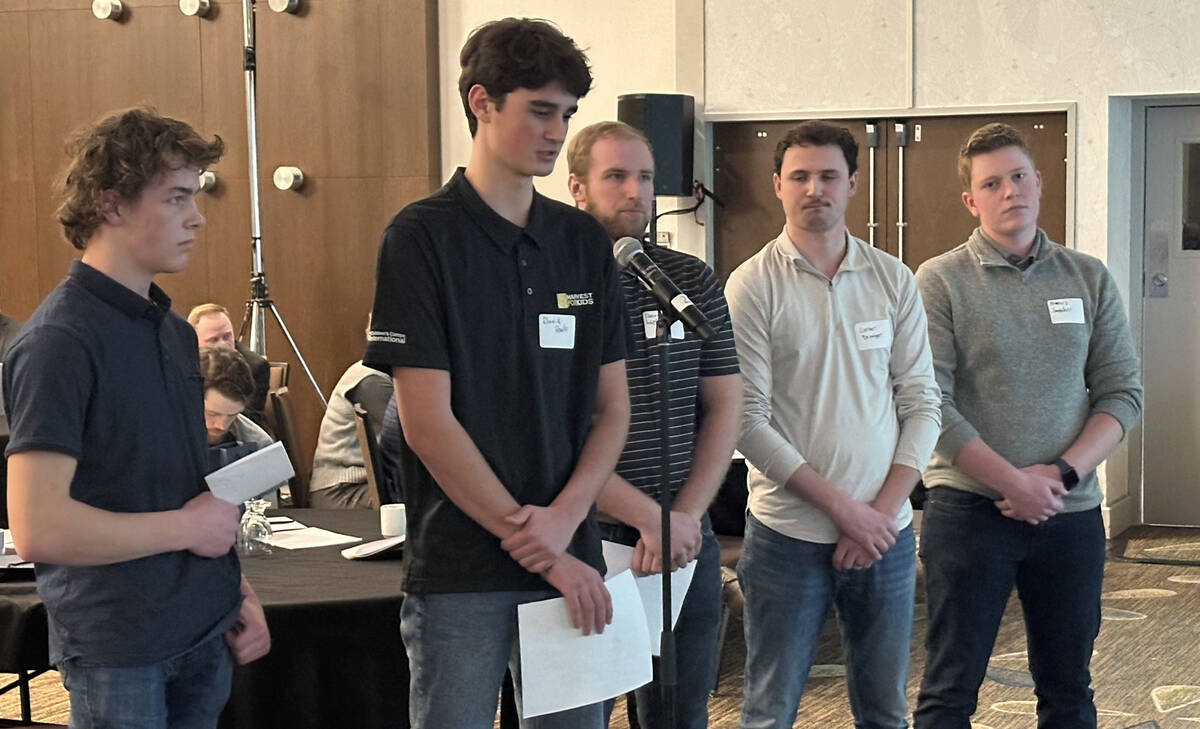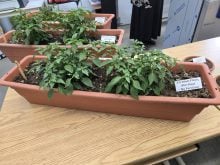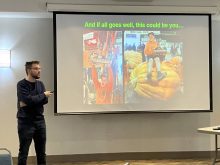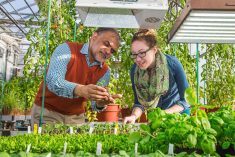A course set to open in Brandon’s Assiniboine Community College campus next fall will prepare workers to run, troubleshoot and fix equipment in increasingly automated agri-food processing facilities.
“It’s the future. Everything’s going digital,” said Chris Budiwski, chair of the college’s agriculture and environment school.
On Aug. 2, ACC announced that, as of September 2024, it will welcome its first 24-student cohort in Mechatronics Engineering Technology.
Read Also

Students push for Manitoba road upgrades
Manitoba’s lack of higher-rated RTAC roads creates irritating highway detours and weight restrictions for farmers, University of Manitoba students told KAP.
The three-year program has been among the anticipated syllabus additions since the college announced it would expand its ag and ag-related offerings
ACC has promised to increase ag-related student spaces from 300 to 800 and add a new ag hub, the Prairie Innovation Centre for Sustainable Agriculture.
Budiwski said mechatronics is a blend of electrical and mechanical systems in an automated industrial environment. In ACC’s case, they focus on food and ingredient processing. Graduates will learn to operate, troubleshoot and potentially fix automated parts of a processing line.
As processors update and expand, many are installing automated production lines, Budiwski said. These lines contain pneumatic equipment, hydraulics, electronic servo motors and various types of sensors.
Technicians need to understand them, run them, ensure they’re performing correctly, clean and replace sensors, identify whether sensors are faulty or are sending false data, and troubleshoot in real time.
“Instead of doing what is typically repetitive work, you’re doing something that’s a little more mindful. You’re sitting there monitoring, you’re diagnosing challenges, you’re working on state-of-the-art machinery,” he said.
“Within an hour or so out of the Brandon region, we have a lot of highly automated … food processing sectors that would take advantage of this immediately.”
He named several, such as pea processor Roquette in Portage la Prairie and pork company HyLife Foods, which he said has recently added a new automated production line.
In 2018, Hylife announced completion of a $176-million expansion and retrofit of its Neepawa plant. It said the bulk of the project was focused on modernization, and that it “now boasts leading-edge technology and is one of the most sophisticated facilities in Canada,” according to an April 2018 news release.
In 2021, American meat giant Tyson Foods said it would spend $500 million on automation in the following year, and a total $1.3 billion over the next three years.
In a December 2021 article in industry magazine Food Processing, Tyson CEO Donnie King reportedly told investors that much of the money would be spent to automate the most difficult, highest turnover tasks such as de-boning chicken carcasses.
Automation has often been floated as solution to ongoing labour challenges in agriculture and food, though barriers like cost, unclear return on investment, lack of access to reliable broadband internet and lack of reliable equipment suppliers discourage many companies from doing it, according to an Agriculture and Agri-Food Canada study released in May.
“New skills and/or increased access to training would be required to operate the technology,” the report said.
Parkland horticulture
The college also announced it will expand its horticulture program next fall, making the course available at both its Brandon and Dauphin campuses.
“This expansion to our Parkland campus in Dauphin helps to meet the need of the growing greenhouse and food development industry there,” said Mark Frison, president of ACC, in an Aug. 2 news release.
The 14-space program will capitalize on the opening of the Vermillion Growers facility, also near Dauphin. The 10-acre greenhouse tomato operation begins production this fall.
The course will be tailored somewhat to the greenhouse company’s needs, Budiwski said. For instance, since Vermillion Growers focuses on tomatoes, there will be a healthy tomato component.
The college also wants to incorporate guest speakers from the company and on-site visits for hands-on experience, Budiwski said.
The Brandon horticulture program has been full for a number of years, he added.
















